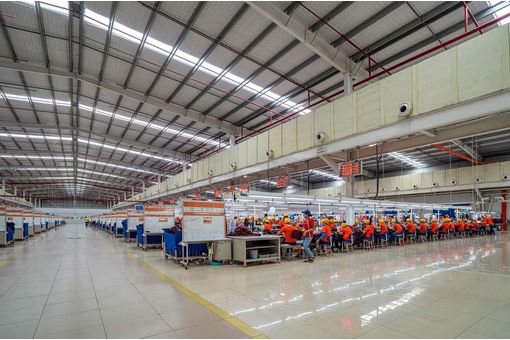Interviews
Jute sector claims loss of Rs 1000 / ton in govt supply
23 Dec '10
3 min read
The Indian jute goods producing industry is up in arms against, what they consider as a faulty calculation of a government body, due to which they are losing Rs 900-1000 per ton of Btwill jute bags supplied to the government for packaging food grains.
The Jute Commissioner's (JC's) office, fixes the price of Btwill jute bags meant for Government procurement, based on the average of three months price cited by the Jute Balers Association (JBA).
According to the jute bag producers, actually they are paying a higher price than the raw jute prices quoted by JBA, along with which they have to contend with 21-22 percent moisture content in the fibre, which is just 18 percent, when considered by the JC, while calculating the price.
So, while, they are purchasing raw jute at Rs 36,000 / ton, the JC calculates it at Rs 35,000 / ton, based on the average three months' price. The sector adds by saying that, the government is now purchasing jute bags at a price of Rs 55,350 per ton while the actual price should be Rs 56,350 / ton, which is a loss of Rs 1,000 / ton.
Speaking exclusively to fibre2fashion, Mr Manish Poddar, Chairman, Indian Jute Mills Association (IJMA) said, “Actually, what we sell to the government is based on a tariff commission (TC) formula. The government is still following the 2001 TC formula. The new TC report has come out in 2009, but the government has not yet taken a decision on that.
“We are still waiting for the final decision as to whether they will accept that report or not. It's always a fair price that is calculated. There is a fixed cost and a variable cost. The fixed costs have not changed, only the variable costs are changing. The fixed cost is still at 2001 levels”.
Informing about the grievances of the jute sector, he said, “Indian Jute Mills are going through a rough patch because the demand for jute goods have gone down. We have written to the Ministry of Textiles that sugar companies are not lifting adequate quantities. We consider the slow pick up of jute bags for the purpose of packing food grains as a temporary phase, since the government has lots of food grains in stock.
“The government is planning to increase their storage capacity, so next year again; food grain procurement will go up, which will in turn generate demand for jute bags. The main challenge is the raw jute price. It has gone up by 200 percent in the last two years. The premium and higher quality raw jute prices have gone up further.
“So competitor packaging products like plastic turn out to be cheaper. However no one is bothered by the environmental degradation that plastics cause in our country. One example is the Mumbai floods, which mainly happened because of plastics clogging the drainage pipes. These issues and mainly high raw jute prices are a deterrent to the consumers in general”, he concluded by saying.
The Jute Commissioner's (JC's) office, fixes the price of Btwill jute bags meant for Government procurement, based on the average of three months price cited by the Jute Balers Association (JBA).
According to the jute bag producers, actually they are paying a higher price than the raw jute prices quoted by JBA, along with which they have to contend with 21-22 percent moisture content in the fibre, which is just 18 percent, when considered by the JC, while calculating the price.
So, while, they are purchasing raw jute at Rs 36,000 / ton, the JC calculates it at Rs 35,000 / ton, based on the average three months' price. The sector adds by saying that, the government is now purchasing jute bags at a price of Rs 55,350 per ton while the actual price should be Rs 56,350 / ton, which is a loss of Rs 1,000 / ton.
Speaking exclusively to fibre2fashion, Mr Manish Poddar, Chairman, Indian Jute Mills Association (IJMA) said, “Actually, what we sell to the government is based on a tariff commission (TC) formula. The government is still following the 2001 TC formula. The new TC report has come out in 2009, but the government has not yet taken a decision on that.
“We are still waiting for the final decision as to whether they will accept that report or not. It's always a fair price that is calculated. There is a fixed cost and a variable cost. The fixed costs have not changed, only the variable costs are changing. The fixed cost is still at 2001 levels”.
Informing about the grievances of the jute sector, he said, “Indian Jute Mills are going through a rough patch because the demand for jute goods have gone down. We have written to the Ministry of Textiles that sugar companies are not lifting adequate quantities. We consider the slow pick up of jute bags for the purpose of packing food grains as a temporary phase, since the government has lots of food grains in stock.
“The government is planning to increase their storage capacity, so next year again; food grain procurement will go up, which will in turn generate demand for jute bags. The main challenge is the raw jute price. It has gone up by 200 percent in the last two years. The premium and higher quality raw jute prices have gone up further.
“So competitor packaging products like plastic turn out to be cheaper. However no one is bothered by the environmental degradation that plastics cause in our country. One example is the Mumbai floods, which mainly happened because of plastics clogging the drainage pipes. These issues and mainly high raw jute prices are a deterrent to the consumers in general”, he concluded by saying.
Fibre2fashion News Desk - India
Popular News
Leave your Comments
Editor’s Pick
Pratik Gadia
The Yarn Bazaar - Filosha Infotech Private Limited
Folker Stachetzki
Brother Internationale Industriemaschinen GmbH
































-Ltd..jpg?tr=w-120,h-60,c-at_max,cm-pad_resize,bg-ffffff)





.jpg?tr=w-120,h-60,c-at_max,cm-pad_resize,bg-ffffff)
.jpg?tr=w-120,h-60,c-at_max,cm-pad_resize,bg-ffffff)






